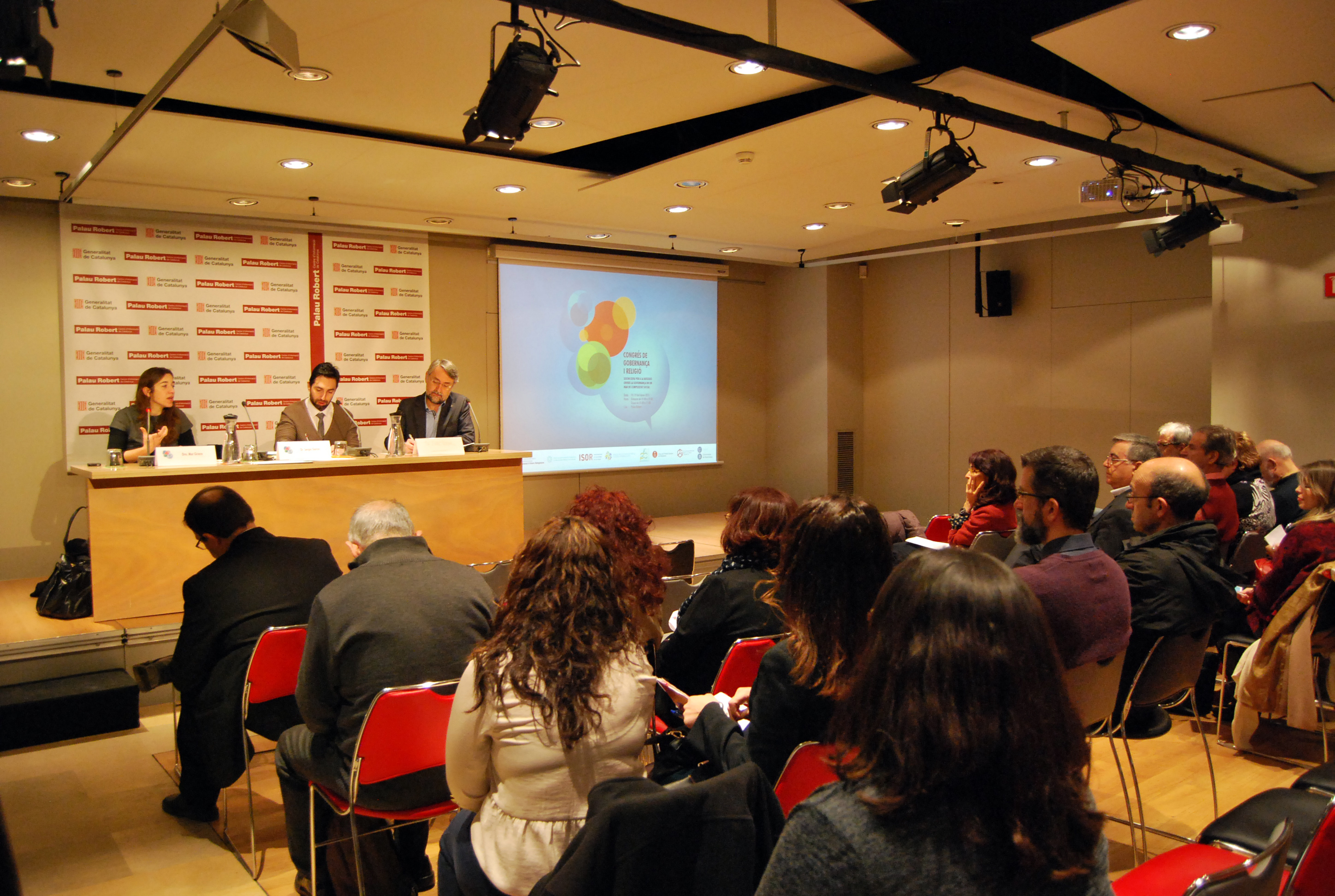
BARCELONA, SPAIN — Over 50 people gathered at "The Conference on Governance and Religion", held recently at the iconic Palau Robert in Barcelona, Spain.
The conference was cosponsored by the Baha'i community of Spain in collaboration with seven other organizations and institutions, including the University of Barcelona, UNESCO's Association for Interreligious Dialogue, and the Government of Catalonia's General Directorate of Religious Affairs.
Organizers wanted to promote a dialogue on new, just, and peaceful forms of social organization, drawing on insights from science and religion, explained Sergio Garcia, a representative of the Baha'i community.
"The purpose of the Congress was to open a space for reflection on the contribution of religion to social progress in general and to the structures, processes, and instruments of good governance in particular," said Dr. Garcia. "A challenge that had to be faced was how to generate a collective space instead of a space where different individuals come to present their paper and go."

The event's opening day was focused on the theoretical dimensions of the subject of governance and religion and explored a number of related themes. What followed on the second day were presentations on the practical contributions of religion to social progress.
The first of the five panels featured sought to define the concept of governance and its relationship with religion. "The concept of governance", as noted by Nuria Vahdat, the first presenter, "encompasses the way in which the formal government, NGOs, community organizations, and the private sector manage public affairs and resources."
Historian Amin Egea then examined how religion has inspired high moral standards that have made possible progressive forms of social organization in different eras. "Ultimately", he said, "the efficacy of institutions governing society depends on the qualities of the people participating in them."
On the second panel, Mar Griera, the Director of the Institute of the Sociology of Religion at Universitat Autonomo de Barcelona, challenged the commonly held view that pluralistic and modern societies lead to the marginalization of religion. In her presentation, she explored how religion can flourish in modern societies, citing empirical data to support her conclusions.
Dr. Griera's comments were reinforced by her co-panelist Silvia Albareda Tiana, a professor of education at the International University of Barcelona. "The humanist perspectives which religion offers, can promote a more holistic human development," Dr. Tiana stated, "and religious foundations help to improve the conditions for more just, equitable, and sustainable societies."
On the second day, two presentations offered glimpses into the role of religion in social progress. The first explored how numerous spaces for interfaith dialogue in Spain have promoted religious freedom and diversity, and the second looked at the social contributions of religion to a globalized world.
In the final session, Jose Rodriguez, a professor of sociology at the University of Barcelona, shared insights from studies that suggest religion contributes significantly to happiness through its promotion of social cohesion and altruistic action.
Reflecting on the effort of the collaborating organizations to promote a dialogue on governance, Dr. Garcia explained that the conference "may be seen as an effort to open a new forum where different actors representing all sectors of society can contribute collectively to the evolution of social thought in areas of relevance for the betterment of society".
The congress was the second of a series in the coming years that will explore different aspects of governance, such as global governance, political economy, media and public agenda, and collective security.